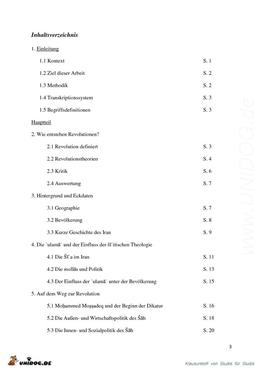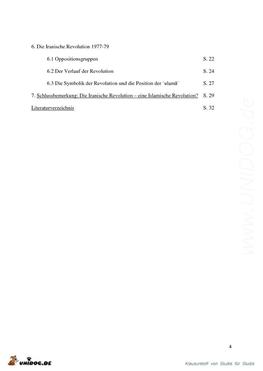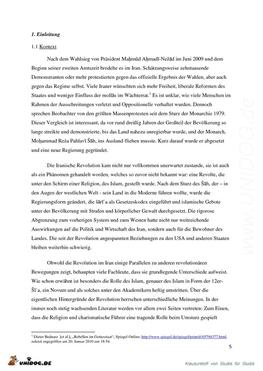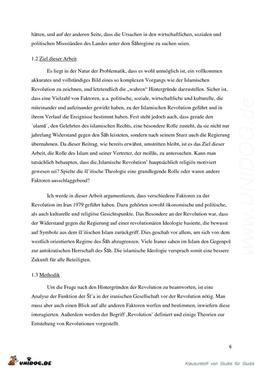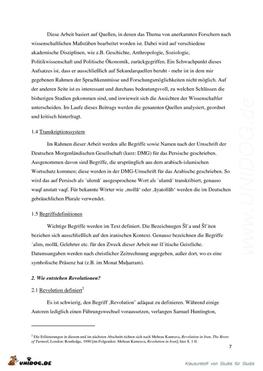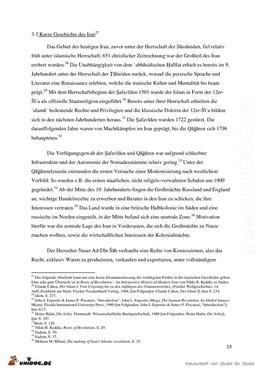| Dokumente | |
|
|
Dokumentvorschau |
Die Islamische Revolution im Iran |
Dokument-Nr.: F-ACDJ |


|
|
Dokument-DownloadUm Zugriff auf dieses Dokument zu erhalten, musst Du Mitglied der UNIDOG Community sein. |
|
Inhalt / Beschreibung
Hausarbeit zum Proseminar „Einführung in die Islamwissenschaft“ (Hausarbeit in deutscher Sprache)
Abstract In 1979, the Islamic Revolution of Iran was an event which, at that time, arose quite unexpectedly. Still more surprising was that the Iranians – after having overthrown a government which, seemingly, tried to incorporate the country into the modern world – established the ‘Islamic Republic’, a system in which Islamic law was enforced even by using corporal punishment. Moreover, its government strongly disassociates itself from the West, resulting in numerous political problems with other countries. This paradigm has yet to be understood. Since the revolution, academics have argued about the reasons behind its emergence. Some claim that the economic and political problems of the country are major factors; others think that Šīʿī religion played a vital role. Therefore, it is the object of this paper to identify the influence that religion and especially its agents, the ʿulamāʾ, have exerted on the revolution. Is it possible to claim that the movement was primarily carried by religious aspects? In order to answer this question, one has to look at the economic, political and social background of the country under the Šāh-regime, as well as establish cultural and religious factors that supported the discontent of the people. I will argue that, while the socio-economic aspects were of vital importance, it was the emergence of a revolutionary ideology full of Šīʿī symbols which strongly affected the masses and connected the different oppositional groups. Islam, which was presented as the solution to all economic and social problems by the ʿulamāʾ and part of the upper class, formed an alternative to the autocratic dictatorship of the Šāh and Western neo-colonialism. Hence, Western countries should reconsider their handling of sensitive issues like the “war on terror” in order to avoid strong resentment from the populations of other countries. |
|
Vorschau-Ausschnitte
|
|||||||
